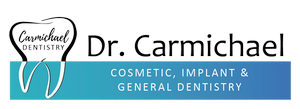Why Early TMJ Disorder Diagnosis Can Prevent Jaw Pain, Headaches and Bite Issues

Understanding TMJ Disorders and Their Impact on Your Life
If you’ve been experiencing jaw pain, frequent headaches, or issues with your bite, you may be dealing with a condition called temporomandibular joint (TMJ) disorder. The TMJ is the hinge that connects your jaw to your skull, and when it’s not functioning correctly, it can lead to a range of uncomfortable symptoms. Early diagnosis of TMJ disorders is essential because it can help you prevent more serious complications down the road. By recognizing the signs early, you can avoid the pain and discomfort that often come with this condition and prevent it from escalating into more severe issues.
The Connection Between TMJ Disorders and Jaw Pain
One of the most common symptoms of a TMJ disorder is jaw pain, which can occur when the joint is not aligned correctly or is experiencing excessive strain. This pain can manifest in various ways, ranging from a dull ache to sharp, intense discomfort, which often makes it difficult to speak, chew, or open your mouth entirely. The muscles around the jaw may also become tense or swollen, contributing to the overall pain. When left untreated, TMJ disorders can cause chronic discomfort, making everyday activities more challenging and reducing your quality of life.
Headaches and TMJ: How They’re Connected
In addition to jaw pain, TMJ disorders are frequently associated with frequent headaches, particularly tension-type headaches or migraines. The misalignment or dysfunction of the TMJ can lead to muscle tension in the head, neck, and shoulders, which in turn triggers headaches. These headaches can be persistent and debilitating, often affecting the temples, forehead, and even the back of the head. The pressure caused by these tension headaches is directly linked to the strain on the muscles and joints involved in TMJ disorders, making them a common complaint among those with the condition. Early treatment of TMJ can help relieve these headaches, improving your overall comfort.
Bite Issues and the Role of TMJ in Your Oral Health
Another significant effect of untreated TMJ disorders is bite issues. The misalignment of the temporomandibular joint can cause the teeth not to align properly when you close your mouth. This misalignment, known as malocclusion, can lead to discomfort when eating or speaking. Over time, bite issues can cause wear and tear on the teeth, leading to further dental complications, such as tooth sensitivity or even tooth loss. By diagnosing and treating TMJ disorders early, you can prevent long-term damage to your teeth and maintain a healthy, functional bite.
The Benefits of Early Diagnosis and Treatment for TMJ Disorders
Early diagnosis of TMJ disorders plays a crucial role in preventing the worsening of symptoms. The sooner you identify the problem, the quicker you can begin treatment, which can include therapy, medications, or even lifestyle adjustments to help relieve pressure on the jaw. Early intervention can not only reduce the severity of the symptoms but can also prevent the need for more invasive treatments down the road. By addressing the root cause early, you can minimize the impact of jaw pain, headaches, and bite issues and improve your overall well-being.
Take the First Step Toward Relief Today
If you’re experiencing jaw pain, headaches, or bite issues, don’t delay seeking treatment. Early diagnosis of TMJ disorders can prevent further complications and provide you with relief. To explore your treatment options, schedule a consultation with our team today. We’re here to guide you every step of the way, providing the high-quality care you need for lasting results. Contact us at Carmichael DDS at (858) 330-2678 or complete our online form to get started!




